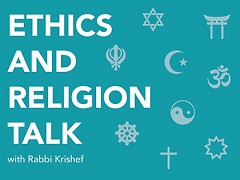The Rev. Sandra Nikkel, head pastor of Conklin Reformed Church, responds:
“Drug abuse is definitely connected to a moral problem. It is a selfish way to find relief from: anxiety, depression, loneliness, insecurity, pain, etc—without considering its impact on our health or on our loved ones. This short cut will never provide the relief that the person is looking for. God has provided us with good coping skills to the challenges and disappointments of life and we would be wise to seek him out for help. ‘Come to me, all you who are weary and burdened, and I will give you rest. Take my yoke upon you and learn from me, for I am gentle and humble in heart, and you will find rest for your souls. For my yoke is easy and my burden is light.’ (Matthew 11:28-30).”
The Reverend Colleen Squires, minister at All Souls Community Church of West Michigan, a Unitarian Universalist Congregation, responds:
“While I know some feel that drug abuse is a moral problem I do not see it as a moral failing if someone becomes addicted to drugs or alcohol. A person who has suffered a trauma or endured abuse, or struggles with depression, or has low self-esteem may turn to drugs or alcohol to help numb the pain. Other support systems may have failed or not been made available to this person. Judge not least ye be judged.
“I do see the long growing use and abuse of drugs and alcohol in the country as a moral failing of our society. I would much rather live in a world that creates programs and support systems to help those most in need and most vulnerable. For example I have yet to understand why anyone would be against universal health care for everyone. This would affirm everyone’s inherent worth and dignity. Instead we now see GoFundMe campaigns where our friends are left to beg for help save their lives. For me that is the moral problem.”
Father Michael Nasser, who writes from an Eastern Christian perspective and is Pastor of St. Nicholas Orthodox Christian Church, responds:
“Those who say drug abuse is purely a moral problem are only seeing one part of this truly complex situation. While it's true that in many cases drug abuse begins with one's refusal to both follow the laws of the land and live a sober and upright life, it is not always the case. We see this in the tragic and growing opioid epidemic which often begins not with a moral failing, but with somebody following their doctor's advice and taking prescribed pain-relieving medication. And even if drug abuse does begin with a moral lapse, the process of addiction is always much more than just someone making bad choices. Addiction can have a moral component, but has very real physiological and emotional components that go beyond the sphere of morality.
“If we are going to make progress with the growing scourge of drug abuse in our society, we must look at the problem accurately. This includes a moral component--which, unfortunately, our society is less and less comfortable doing--but also in the complexity of its reality in all its human dimensions.”
Rev. Ray Lanning, a retired minister of the Reformed Presbyterian Church of North America, responds:
“It has taken Christians a long time to understand that substance abuse (alcohol, drugs, prescription meds, etc.) is problematic in many ways, and not just a moral or sin problem. We need to understand the bio-chemistry involved, the psychological and emotional needs that drive such abuse, and the dire personal and social impacts and costs. It is simply not enough to say that such abuse is sin, and abusers should repent.
“But we fail in our duty to our neighbor if we do not point out that serious sin is involved, whether it be the self-harm, the damage done to loved ones, or the sheer waste of financial and human resources. The momentary thrill of the ‘high’ is followed by a deep sense of loss and guilt. That emptiness and guilt drive the abuser onward in his endless cycle of highs and lows.
“Christ came into the world to ransom His people from such bondage of body and soul. Faith in Christ empowers repentance from sin and obedience to God’s commandments. This is the royal road to true freedom, personal wholeness, and human fulfillment. ‘The chief end of man is to glorify God, and to enjoy Him forever’ (Shorter Catechism, Q. 1).”
Father Kevin Niehoff, O.P., a Dominican priest who serves as Adjutant Judicial Vicar, Diocese of Grand Rapids, responds (abridged):
“ ‘Drugs that have a therapeutic purpose are allowed but the use of illegal drugs inflicts very grave damage on human health and life’ ((Catechism of the Catholic Church, p. 552)…. Life with God is the sole end to human existence and to abuse one’s body by using not only drugs, but also alcohol, food, sex, tobacco, etc., diminish human beings.”
This column answers questions of Ethics and Religion by submitting them to a multi-faith panel of spiritual leaders in the Grand Rapids area. We’d love to hear about the ordinary ethical questions that come up on the course of your day as well as any questions of religion that you’ve wondered about. Tell us how you resolved an ethical dilemma and see how members of the Ethics and Religion Talk panel would have handled the same situation. Please send your questions to [email protected].
The Rapidian, a program of the 501(c)3 nonprofit Community Media Center, relies on the community’s support to help cover the cost of training reporters and publishing content.
We need your help.
If each of our readers and content creators who values this community platform help support its creation and maintenance, The Rapidian can continue to educate and facilitate a conversation around issues for years to come.
Please support The Rapidian and make a contribution today.
